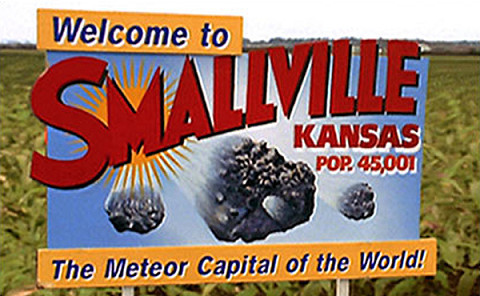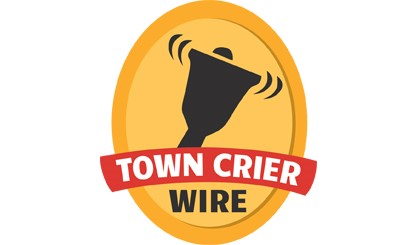
This past fall, JacoBLOG explored the world of mentorship in radio – a hot topic for everyone in the business. Where will the next generation of radio pros comes from? That’s a question I posed to David Field and Mary Berner at last month’s “Forecast 2020,” and it’s something I ask in every presentation I do.
As broadcasters, we owe it to the next generation to help them navigate a tough career terrain. And we owe it to ourselves, our co-workers, our companies, and our shareholders to answer the question, too.
As we close out a tumultuous year in radio, this is one of those issues that will not go away as we turn the page to start 2020. I hope it gives you something to think about as we clink glasses, share hugs and kisses, and get ready to start another year in radio. Thanks for reading our blog this year and best wishes for a peaceful, happy, healthy new year. – FJ
At the end of October, I’ll be spending a day mentoring a fledgling radio wannabe. His name is Nick Tehrani, and he and I have been connected through Dan Vallie’s National Radio Talent Systems and the Benztown’s Mentorship program.

Nick will be joining me in Detroit, and then spend a day with Bob Lawrence, Saga’s head of programming who’s also located in the Detroit Metro area. This should be a great experience for Nick, and frankly, I’m hoping to pick up some tips and insights from him. These past few years when addressing students about the radio industry and careers, I’ve found it very helpful to ask them what’s going on with media, music, and entertainment.
And that’s why I’m approaching my day with Nick with some degree of trepidation. That’s because the only thing worse than no mentoring is bad mentoring. I was fortunate throughout my career to – by and large – receive pretty sound career advice from lots of people, especially in the early years. Sometimes, you learn by just observing. I picked up many career tips – what to do (and sometime what not to do) – from luminaries like Frank Magid, Rick Sklar, Marty Greenberg, John Gehron, and Tom Bender.
And that led me to think about radio generation’s gap today – the gulf between us crusty old radio veterans and those remarkable teens and twentysomethings pursuing a career in broadcast radio. When I jumped into the fray, it was the 1970s, and radio provided an upwardly mobile career path. You could make a lot of money in radio as a salesperson at a very young age. Many of the industry’s biggest and best stations were being programmed by people under the age of 30. Consolidation didn’t exist, so there were exponentially more companies, and as a result, more opportunities in markets of all sizes.
It’s a different world in radio today. While most of the advice and guidance I received by the aforementioned group of mostly ABC Radio pros was spot on, I’m not sure that’s the case today when a young radio wannabe sits down with a radio Boomer like me.
Back then, I (mostly) trusted their judgment and advice. They had experience and had paid their dues. I was still trying to find my way. So, I listened and I took notes.
Contrast that with today’s environment, where long-time broadcasters  may not be as in touch as they think with teens. I thought of that when I read Chuck Taylor’s story in Inside Radio, “Gen Z Offers Radio Some Sound Advice.”
may not be as in touch as they think with teens. I thought of that when I read Chuck Taylor’s story in Inside Radio, “Gen Z Offers Radio Some Sound Advice.”
That’s sometimes called “reverse mentoring” – where young people try to teach grizzled veterans the ropes. Jose Villa, now Chief Strategy Officer at Sensis, took the stage with a group of Gen Z’s.
Here are some of the money quotes that jumped out at me:
- A 40-year-old man cannot relate to a college student. It’s impossible. There’s a big disconnect. Radio shows need to have Gen Z interns on the air.
- I don’t tend to like radio because of the commercials. The only way to bring people my age to radio is to get rid of stop sets for 12 minutes per hour. Bring brands into the programming instead of commercials.
- There are very few voices speaking to Gen Z on radio. It’s a lot of middle-aged men slinging one-liners. Gen Z is aware that radio exists, but that connection doesn’t deepen, because we’re not being spoken to…
- If you don’t have young people on your staff, you are doing it wrong. I’ve got to have people to connect with my life to relate to radio.
Powerful stuff. So, I started compiling a list of bad career advice I’ve heard industry veterans give young, aspiring radio stars. In fact, I had no trouble coming up with eight of them:
1. You don’t need a degree to be successful in radio – That was true back in the day. Many of radio’s most successful broadcasters skipped or cut short their college years to get an early jump in the business. Today, things have changed. While not true across the board, great content, smart marketing, and data deployment usually require education. Presentation and writing skills are essential, in addition to being well-read. College also inspires curiosity – a quality that is essential for success in this business (and most others)
2. Start out in a small market and work your way up – Yes, that was the old school upwardly mobile way to go – Muskegon to Flint to  Grand Rapids to Detroit to New York. Of course, that’s still a workable trajectory, but in the biggest markets, there is need for young expertise – NOW – especially in sales and in digital departments. A young person with strong skills and plenty of motivation can get started in Chicago or L.A. just as easily as Chattanooga or Lima. And they can be impactful.
Grand Rapids to Detroit to New York. Of course, that’s still a workable trajectory, but in the biggest markets, there is need for young expertise – NOW – especially in sales and in digital departments. A young person with strong skills and plenty of motivation can get started in Chicago or L.A. just as easily as Chattanooga or Lima. And they can be impactful.
3. If you can entertain, you’ll have a job forever – Tell that to Jay Leno who – for all intents and purposes – lost his gig when it became obvious he wasn’t buying into social media and the new digital ecosystem. A look at late night hosts in 2019 shows a group that’s especially savvy with their online communities, using the entire tool kit to push out content, and expand their base. Yes, Jimmy Kimmel, Stephen Colbert, Seth Meyers, and James Corden are entertaining guys. They also are immersed in technology and growing and engaging their fan bases via digital pathways.
4. Stay in your lane – OK, this is a tricky one. Smart, thoughtful radio employees learn how to pick and choose their spots. These days, simply doing your job is often not enough to sustain your career. The more different skills you acquire – especially the rare ones that no one else can do – the more secure you are and the more valuable you’ll be to the company. Start a podcast, try out new social media platforms, go to a tech convention – in short, grow your skills because training is harder and harder to come by. If you can edit video, know your way around Photoshop, or are a video games pro, let your bosses know. They might just put you to work in a more interesting department or job.
5. Stay put – don’t market hop – This has become bad advice whether you’re in radio, logistics, or computers. Millennials have the reputation for up and leaving jobs, working for several different companies over a short time span, showing no sense of loyalty. While radio companies and their executives get frustrated when smart young people move onto to allegedly greener pastures, that’s the way of this world. Radio broadcasting is no different. For young people excited about radio, there’s no reason to work for a lame company or bad people. Life is short. Find a radio company and a community that suits your style, your goals, and your personality. They’re out there, but chances are, you won’t find it in your first (or your second job).
up and leaving jobs, working for several different companies over a short time span, showing no sense of loyalty. While radio companies and their executives get frustrated when smart young people move onto to allegedly greener pastures, that’s the way of this world. Radio broadcasting is no different. For young people excited about radio, there’s no reason to work for a lame company or bad people. Life is short. Find a radio company and a community that suits your style, your goals, and your personality. They’re out there, but chances are, you won’t find it in your first (or your second job).
6. Respect your elders – OK, this is a bit awkward, because I’m an elder. But after attending that Detroit radio reunion a few weekends back, I on the one hand marvel at these aging radio pioneers. But on the other hand, the business has so completely changed that it often doesn’t resemble its roots – especially for on-air personalities. For young people in the business, an understanding of the medium’s history may be helpful, but it has little to do with what success looks like in 2020. The older folks at the station have experience on their side – but you have knowledge and skills about changing audiences sensibilities and engagement. You both have a lot to offer.
7. It’s all about the ratings – On the one hand, it still is. But on the other, digital revenue has been growing while spot sales (transactionally based on ratings) have been flattish to  down. Better advice to fledgling radio stars is to figure out a way to expand your online audience, and make it work for advertisers and marketers. Do that, and you’re well on the way toward becoming the MVP for your cluster – or your company. Yes, your 25-54 rank, your cume, and your average rating are important to the traditional way radio is bought and sold, but help solve monetizing your station’s digital domain, and you’re off to the races.
down. Better advice to fledgling radio stars is to figure out a way to expand your online audience, and make it work for advertisers and marketers. Do that, and you’re well on the way toward becoming the MVP for your cluster – or your company. Yes, your 25-54 rank, your cume, and your average rating are important to the traditional way radio is bought and sold, but help solve monetizing your station’s digital domain, and you’re off to the races.
8. And whatever you do, don’t go into radio – Maybe the worst advice of all. There’s no shortage of jaded, angry, disillusioned former radio people who feel they’ve been burned by heinous corporations and evil people in suits. In reality, a lot of good people were treated poorly, and the industry lost many good people as a result of budget cuts. But somehow, many industrious broadcasters have found a way to survive – and thrive – even in this whipsaw environment. And as we know, every industry is being disrupted by technology and the changes it wreaks. It takes different skill sets and a resilient mindset to make your mark in radio, but it still can be done.
So, that’s my list of bad Boomer advice for fledgling young radio stars. But I want to leave you radio veterans with a sense of paying it forward in the form of mentoring. Whether it’s speaking to high school or college students and classes, I invite you to connect with organizations like Conclave, Dan Vallie’s program, Joel Denver’s “Ria’s Rising Stars,” and take advantage of opportunities to welcome Millennials or Gen Zs to the industry.
Broadcast radio will get better when it expands its tent, actively welcoming young people to this industry. The great news is that many still want to work in radio.
It’s on us to encourage and help them find their way.
- Media And Technology In 2025: Believe It Or Not! - April 18, 2025
- In Radio, You Just Never Know - April 17, 2025
- The Secret To Making A Great Podcast (And Great Radio) - April 16, 2025





As a veteran people leader in the biz. This is best thing I”ve read all year.
It’s not just the right thing to do….it’s our responsibility to our industry.
Thanks Fred1
Appreciate that Scott. Thanks for the kind words.
The same is so true of the recording industry. I’ll never forget the conversation I had with a group of fellow “hit makers” in a green room shortly before we took the stage as a panel. I asked “why us?” It turned out the only thing we all had in common was that we had each worked on our first major label release before we were 18 years old! Now this was in 1972. Back then people born in the same decade were making, playing and buying the same records. Because they were young, they were open to a new generation of stars. As much as industry people like to blame their sales problems on Napster, there IS an elephant in the room!
Not quite a Boomer — on the older end of Gen X, really — but this is all good advice. I’ve been doing this for 35 years now, and change has been a part of the business as long as I’ve been in it. As much as some of my fellow broadcasters — and some of those who mentored me — want to go back to “how it used to be”, that’s just not going to happen.